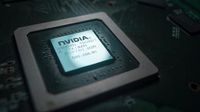In a significant shift for the tech industry, stricter energy efficiency standards for data centers have been introduced by China’s National Development and Reform Commission (NDRC). These regulations, which could disqualify NVIDIA's flagship H20 chip from the Chinese market, have already prompted major tech firms like Alibaba, Tencent, and ByteDance to reconsider their orders for the product, according to a report by the Financial Times.
The new rules are part of China's broader effort to enhance energy efficiency and reduce carbon emissions. However, they also raise concerns for NVIDIA, a company that has heavily invested in the Chinese market. If these regulations are enforced, NVIDIA risks losing valuable clients and facing intensified competition from local companies such as Huawei.
Meanwhile, across the Pacific, a Japanese startup named Preferred Networks is positioning itself as a serious competitor to NVIDIA in the artificial intelligence (AI) sector. Established as a unicorn, Preferred Networks has garnered significant investments from major players, including Toyota, which invested one billion Yen in 2015 and an additional 10.5 billion Yen in 2017. The company recently raised 19 billion Yen in a funding round aimed at bolstering its AI semiconductor development.
CEO Daisuke Okanohara emphasized the company's commitment to using AI to solve real-world problems, stating, "In the last 10 years, we have worked to utilize AI to address real-world challenges." The firm is focusing on various sectors, including trucking, healthcare, and robotics, and is collaborating with Mitsui & Co. on a joint venture dedicated to autonomous driving technologies.
However, the road to profitability may be long for Preferred Networks. CEO Toru Nishikawa noted that the company expects it will take several years for their technologies to generate revenue, particularly in areas like AI-based material research, which he estimates will take three to five years to commercialize.
In a related development, on March 26, 2025, Bolt Graphics, a California-based startup, announced the launch of its new GPU, Zeus, which aims to outperform NVIDIA's products in both performance and efficiency. Bolt claims that Zeus can enhance rendering performance by tenfold, FP64-HPC workload performance by sixfold, and electromagnetic wave simulation performance by an astonishing three hundredfold.
Zeus also introduces expandable memory capabilities, allowing users to increase their memory up to 384 GB with a PCIe card and up to 2.25 TB per Zeus in a 2U server. The startup asserts that a rack of Zeus 2U servers could be configured to support up to 180 TB of memory, significantly more than older GPU models.
Moreover, Bolt Graphics is focusing on energy efficiency, claiming that Zeus will reduce power consumption while boosting performance. CEO Darwesh Singh stated, "Zeus increases performance while lowering power consumption," highlighting the startup's commitment to addressing the environmental impact of GPUs.
Despite the promising features of Zeus, the product is not yet available for purchase, with large-scale production expected to begin in 2026. Until then, it remains to be seen whether Bolt's ambitious claims will hold up against established competitors like NVIDIA and AMD.
On a geopolitical front, Malaysia is tightening its semiconductor regulations in response to pressure from the United States. The U.S. government has requested specific controls for high-end NVIDIA chips to prevent their transfer to China, citing concerns that advanced semiconductors could bolster China's military capabilities. Malaysian authorities are cooperating with U.S. and Singaporean officials to ensure that these technologies do not end up in the wrong hands.
As part of this effort, Malaysia is closely monitoring the flow of NVIDIA chips entering the country to prevent unauthorized shipments to China. Investigations are ongoing in Singapore to trace the final destinations of servers containing NVIDIA chips, which may have been misdirected to Malaysia before being forwarded to China.
These developments reflect a larger trend of increasing scrutiny over technology transfers to China, as the U.S. seeks to curb the technological rise of its geopolitical rival.
As of March 24, 2025, NVIDIA shares were trading at a slight increase of 0.90%, priced at 109.9 EUR on Tradegate. The ongoing geopolitical tensions and market competition will undoubtedly keep investors on edge as the landscape continues to evolve.
In summary, the tech industry is witnessing a confluence of regulatory changes, competitive innovations, and geopolitical pressures that could reshape the market dynamics for companies like NVIDIA, Preferred Networks, and Bolt Graphics. As these companies navigate the challenges and opportunities ahead, the stakes have never been higher for maintaining a competitive edge in the rapidly evolving world of technology.




